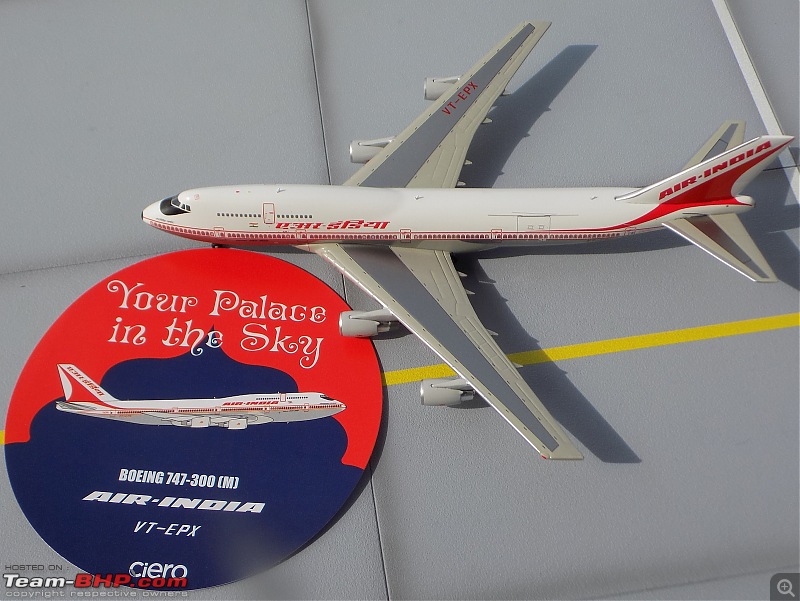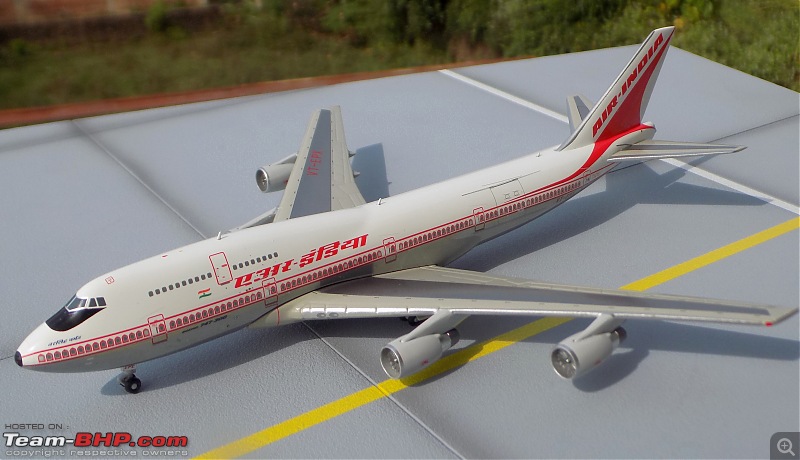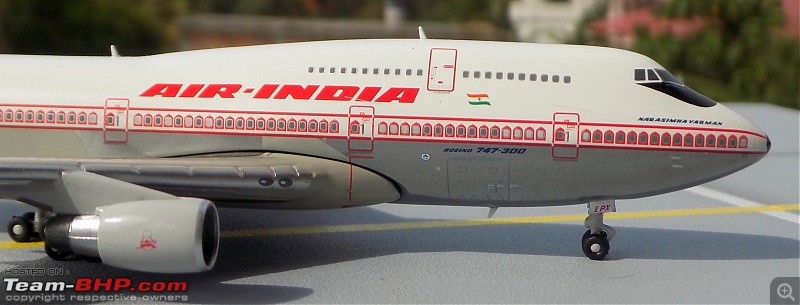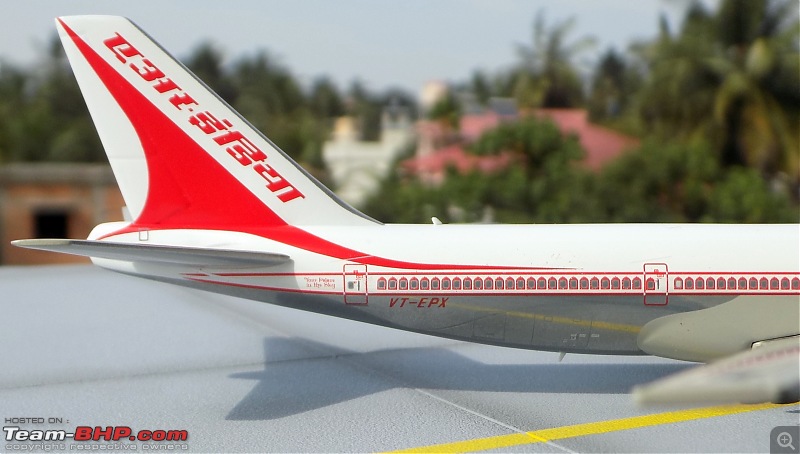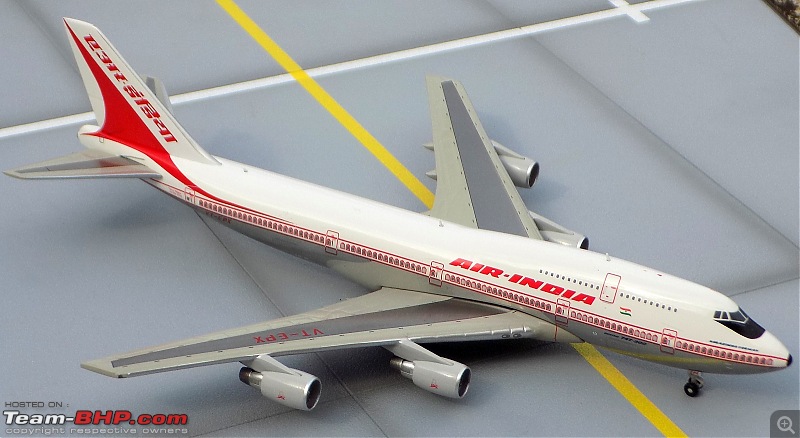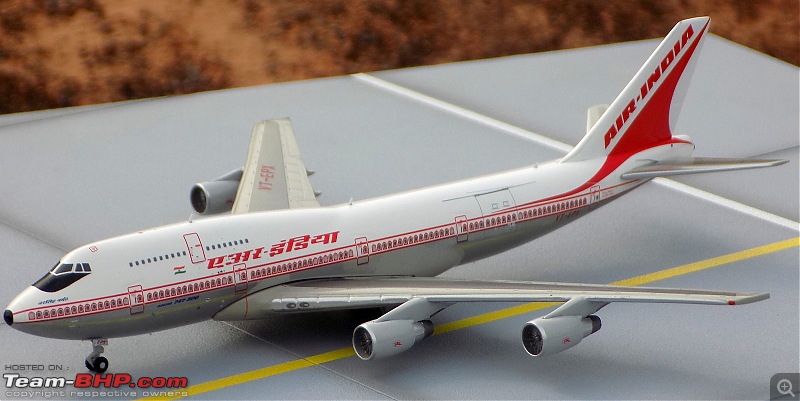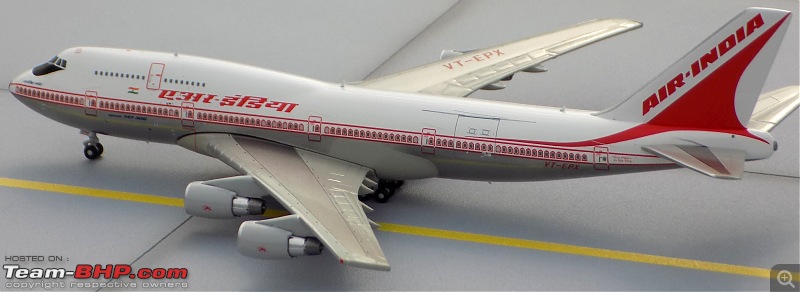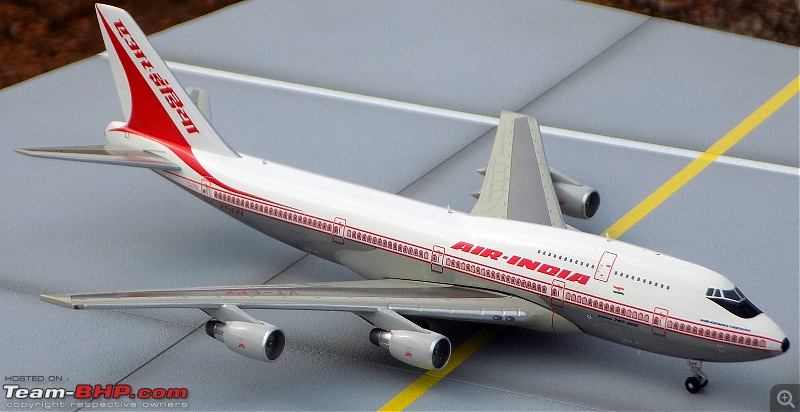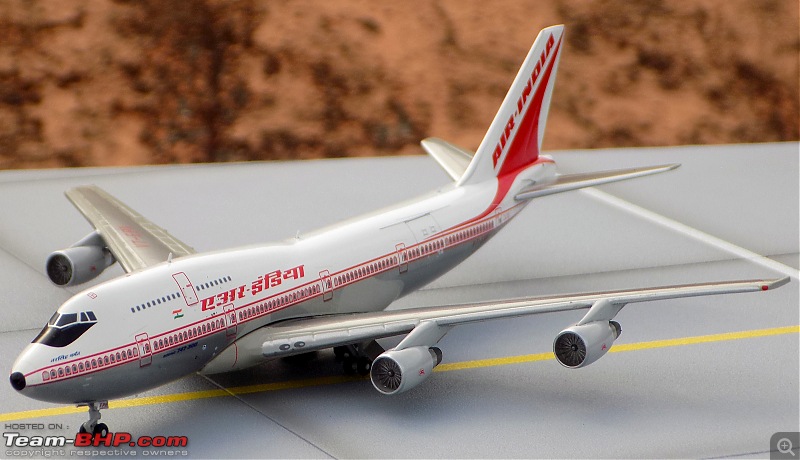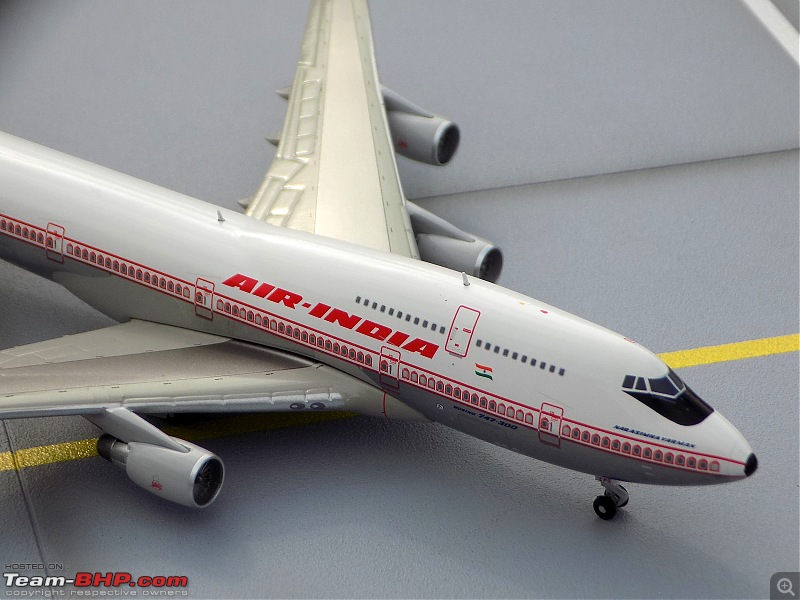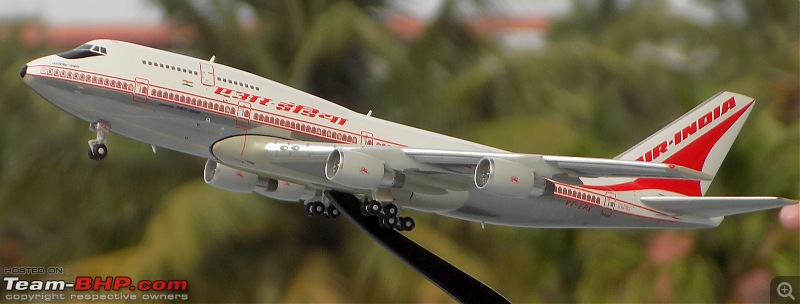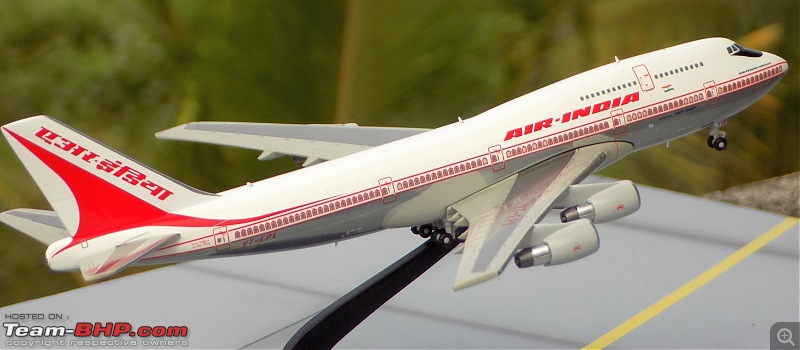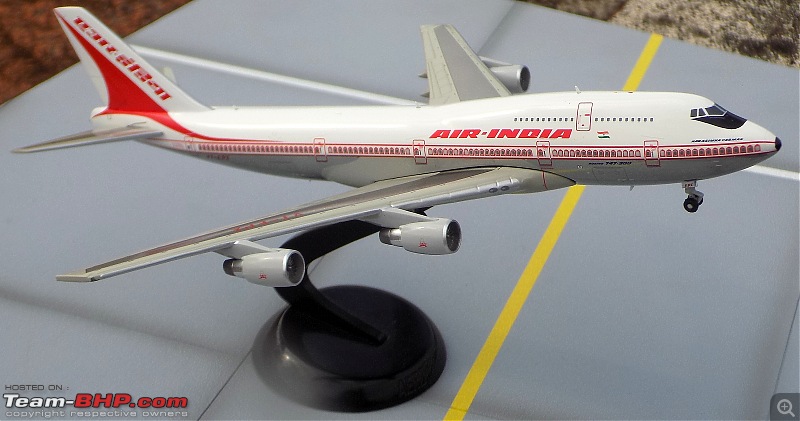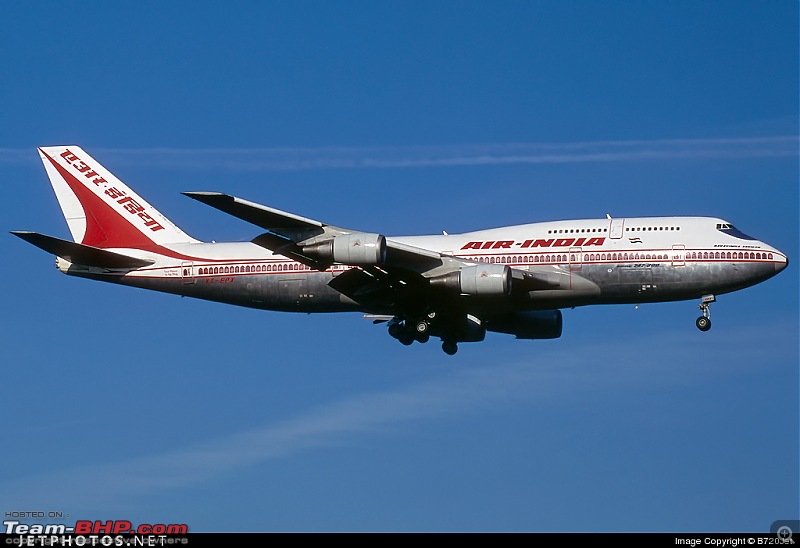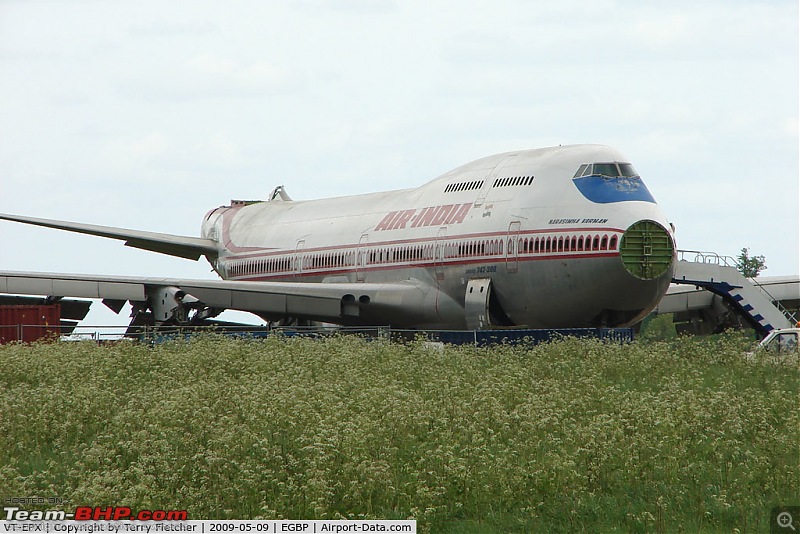Team-BHP
(
https://www.team-bhp.com/forum/)
Quote:
Originally Posted by skanchan95
(Post 5442666)
1:400 Airbus A321NEO(271NX) Indigo VT-IUH "1000th NEO" (NG Models)
Indigo's A321NEO VT-IUH was the 1000th aircraft built of the A320NEO family.
|
That is an iconic model - the 1000th. The very fact that an Indian carrier, that too a private airline has achieved this shows the value of thinking big and bold. I frankly find Indigo to be my preferred airline for domestic routes for the 60 to 70 sectors I fly each year. Congratulations.
Quote:
Originally Posted by skanchan95
(Post 5443509)
1:400 Fokker F27-100 Indian Airlines VT-DOL(Aeroclassics)
The Fokker F27 Friendship was a Dutch airliner powered by Rolls Royce Dart turboprop engines first flown in 1954. It could seat 44 passengers comfortably and saw extensive service with Indian Airlines and Vayudoot on their short regional routes.
|
This is a find, a real find.clap: An Indian Airlines F.27
In c.1960 when Krishna Menon, India's most notorious Defence Minister, went in for the Avro HS.748 without consulting the IAF or Indian Airlines we ended up buying a sub-optimal aircraft for IA and a completely incompatible aircraft for the IAF and the British refused to do any transfer of technology beyond assembly. Fokker had offered the F.27 with almost full ToT {not including the Rolls Royce Dart engines} and Krishna Menon turned it down, sadly. The F.27 because and lighter fuselage and its superb wing had better hot and high take off than the Avro, a truck bed height cargo bay and longer range! Between late-50s and late-60s there were quite a few twin engine 40 to 56 seater regional turboprops and the F.27 was by far the best in performance, seat-mile cost & take-off characteristics. The others in the fray were Avro HS.748, An-24/26, the Japanese YS-11, Handley Page Herald and Nord 262. the last three most on this thread may not have heard of before.
Quote:
Originally Posted by skanchan95
(Post 5444052)
1:72 Bell AH-1S/F Cobra (Tzefa - Viper) Israeli Air Force (Amer Com)
|
The first real attack helicopter that set the configuration of attack choppers to this day.:thumbs up Congratulations
Quote:
Originally Posted by skanchan95
(Post 4696264)
VAW-126 Hawkeye was directly involved in the 1989 Gulf of Sidra Incident, where two F-14As of VF-32 "Swordsmen" shot down two Libyan MiG-23s. The video and transcript gives a fair idea about the co-ordination between an E-2, fighter interceptors it guides and the C&C on the aircraft carrier:
The second Gulf of Sidra incident occurred on 4 January 1989 when two United States Navy F-14 Tomcats shot down two Libyan MiG-23 Floggers that appeared to have been attempting to engage them, as had happened eight years prior in the first Gulf of Sidra incident, in 1981.On the morning of 4 January 1989, the Kennedy battle group was operating some 130 km north of Libya, with a group of A-6 Intruders on exercise south of Crete, escorted by two pairs of F-14As from VF-14 and VF-32, and as well as an E-2C from VAW-126. Later that morning the southernmost Combat Air Patrol station was taken by two F-14s from VF-32, (CDR Joseph Bernard Connelly/CDR Leo F. Enwright in BuNo 159610, ‘AC207’) and (LT Hermon C. Cook III/LCDR Steven Patrick Collins in BuNo 159437, ‘AC202’). The officers had been specially briefed for this mission due to the high tensions regarding the carrier group’s presence; the pilots were advised to expect some kind of hostilities.
The on station E-2C Hawkeye of VAW-126 (callsign CLOSEOUT) detected two streamed pairs of Libyan fighters launching from the base at Al Bumbah, with GYPSY 207 subsequently leading the intercept as Enright identified on his own radar at a bearing of 175 degrees, range 72 nautical miles, flying at 10,000 feet. As the Libyan fighters were soon confirmed on the Tomcats’ TCS screens as being fully armed Libyan MiG-23 FLOGGERs – continued the F-14s went through a series of manoeuvres to offset the MiGs, which would then re-position a number of times. Before the final phases of the engagement, the US Navy pilots used their long range radars and locked onto the Libyan MiG-23s. In past brushes with the Libyans, they would usually retire to the south, taking the warning at face value. This time, however, despite repeated radar lock-ups, the Libyans bored straight in. https://www.youtube.com/watch?v=Q2eSk6uQWS0
|
Quoting a very old post but I was reminded of it recently when I saw this in a museum (Udvar-Hazy Center, Virginia) near Washington DC. The exact F-14 still survives and is in showroom condition.
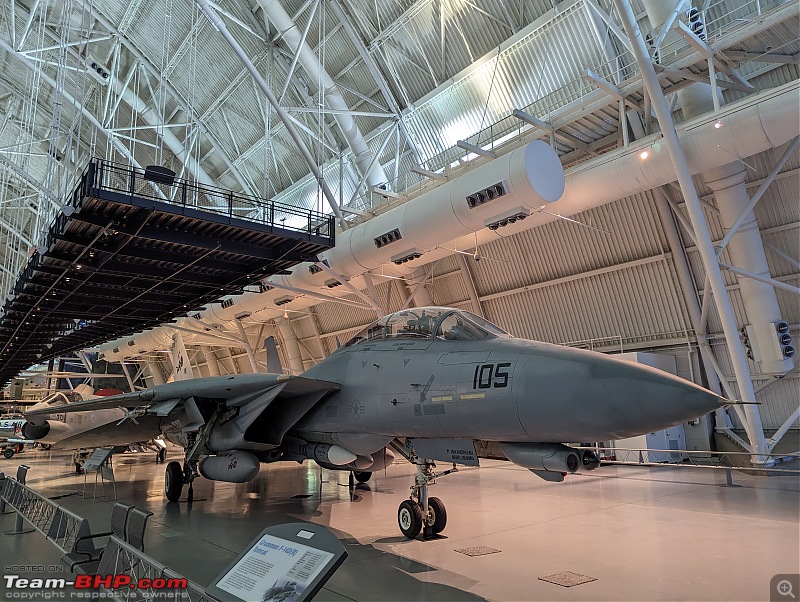 https://airandspace.si.edu/multimedi...2006-24265hjpg
https://airandspace.si.edu/multimedi...2006-24265hjpg
I was appalled to see this B-29 (had seen this way back in 1995 as a kid when just the nose was displayed at the main Smithsonian museum in DC. It caused such a controversy that it was moved away from the main Smithsonian Air and Space museum in Washington DC.) This single aircraft named "Enola Gay" was responsible for 100,000+ civilian deaths (it dropped the atomic bomb on Japan back in 1945) and its kept in a museum as a showpiece and star attraction.

Quote:
Originally Posted by Foxbat
(Post 5449863)
I was appalled to see this B-29 (had seen this way back in 1995 as a kid when just the nose was displayed at the main Smithsonian museum in DC. It caused such a controversy that it was moved away from the main Smithsonian Air and Space museum in Washington DC.) This single aircraft named "Enola Gay" was responsible for 100,000+ civilian deaths (it dropped the atomic bomb on Japan back in 1945) and its kept in a museum as a showpiece and star attraction.
|
From a strictly aviation point of view this aircraft does have significant historical value even if a notorious one. From a humanitarian point of view....well well well Foxbat.... the good guy Anglo-Saxons were lined up against the bad guy yellow skins you know and them yellow, brown and black types don't count even if civilians.:disappointed
Now if the shoe were on the other foot and it were the Russians or Japs who dropped the bomb we would never hear the end of it. In the mid-1970s Indira Gandhi spoke at the 1976 Non-aligned nations' meeting that the greatest power the West has is that it controls the global media and the narrative. At the time as a teenager I genuinely did not understand what she meant. Now, older & more bitten, I do.
Quote:
Originally Posted by V.Narayan
(Post 5450096)
In the mid-1970s Indira Gandhi spoke at the 1976 Non-aligned nations' meeting that the greatest power the West has is that it controls the global media and the narrative. At the time as a teenager I genuinely did not understand what she meant. Now, older & more bitten, I do.
|
Same here, growing up in the US I took US news, books and magazines as facts, only when I moved back to India and became much older did I realise all I read was propaganda.
I do see a little change in general knowledge of Americans now about world events but I think its limited to the 1% well-read folks.
Quote:
Originally Posted by Foxbat
(Post 5449863)
Quoting a very old post but I was reminded of it recently when I saw this in a museum (Udvar-Hazy Center, Virginia) near Washington DC. The exact F-14 still survives and is in showroom condition.
|
Thanks for this
Yes, but configuration wise, this Tomcat is not the same as it was 33 years ago when it shot down that Libyan MiG-23 as an F-14A. It got upgraded to F-14D standards before being retired.
I believe one of the Tomcats that shot down a Libyan Su-22 in 1986 too is preserved in the US in a museum in its original F-14A avatar.
Quote:
Originally Posted by V.Narayan
(Post 5450096)
Now if the shoe were on the other foot and it were the Russians or Japs who dropped the bomb we would never hear the end of it. In the mid-1970s Indira Gandhi spoke at the 1976 Non-aligned nations' meeting that the greatest power the West has is that it controls the global media and the narrative. At the time as a teenager I genuinely did not understand what she meant. Now, older & more bitten, I do.
|
Fully agree.
Winston Churchill — not a fan of him by the way — supposedly once said "History is written by victors". Regardless of who originally said it, I think it is true.
And just to be clear, the Japs back then weren't exactly saints either. All sides have blood on their hands.
Quote:
Originally Posted by skanchan95
(Post 5460550)
1:400 Boeing 747-300 Combi Air India VT-EPX "Narasimha Varman" (Big Bird 400)
AI's old livery was probably most graceful livery ever painted on a 747. The fact that those old 747s were named after Indian Emperors & Kings, made it even more fascinating.
|
Wow thats a rare one and really well detailed model. I have a 1:400 Air India 747 but its nowhere as detailed. Is this a newly manufactured model ? Mine was an 10-15 year old piece bought on eBay.
Quote:
Originally Posted by skanchan95
(Post 5460550)
1:400 Boeing 747-300 Combi Air India VT-EPX "Narasimha Varman" (Big Bird 400)
AI's old livery was probably most graceful livery ever painted on a 747. The fact that those old 747s were named after Indian Emperors & Kings, made it even more fascinating.
VT-EPX was one of the last 747 Classics off the line, it featured the 747-400 wing root and also the GE CF6-80C2 engines used on the -400
|
Thanks for sharing. I was intrigued by you mentioning this 300 series had some series 400 parts. Never knew that. I googles a bit and stumbled upon this website with a lot of 747 AirIndia photographs.
https://www.airindiacollector.com/bo...jumbo-jet.html
Jeroen
Quote:
Originally Posted by Foxbat
(Post 5460727)
Wow thats a rare one and really well detailed model. I have a 1:400 Air India 747 but its nowhere as detailed. Is this a newly manufactured model ? Mine was an 10-15 year old piece bought on eBay.
|
Yes, it is a new one. The same brand simultaneously released AI's other B743 - VT-EPW "Shivaji" with a Blue anti-glare paint around the cockpit windows.
1:43 BTR-60PB Soviet Naval Infantry (Modimio)
The BTR-60 was the first vehicle in a series of Soviet eight-wheeled Armoured Personnel Carriers (APCs). It was developed in the late 1950s as a replacement for the BTR-152 and was seen in public for the first time in 1961. BTR stands for
Bronetransporter (БТР, Бронетранспортер, literally "Armoured Transporter").
The BTR-60 looked like an MPV sloped hull with reservations for the massive wheels, and compartmentation between the crew (front), troops (center) and engine (rear). It was revolutionary for the time. The crew compartment originally comprised a driver (left) and commander (right), but with the appearance of the armed version (PAI-PB-PZ), a third member, the gunner, was located behind them, center, on an elevated seat. He manned the turret by a hand crank and used a PP-61A optical sight. Access was initially by the sides, but during production to improve amphibious capabilities, these were shifted to the top ( BTR-60PA). The hull was seaworthy due to the boat-shaped nose, and by rough seas, improved by the extended trim vane.
On the BTR-60B, the gunner had his own right-hand side door, while the commander and driver were given pistol ports. On early models, only the driver had the periscope (the commander had a removable OU-3 infrared searchlight), but later each had three periscopes. R-113 and more rarely R-123 radio kits were carried. Night vision was gradually improved by the adoption of the TKN-1 connected with the OU-3 illuminator for the driver and TWN-2 sight for the driver. In addition, there were the four headlights, including two infrared and two white.
The troop compartment could accommodate 16 fully-equipped soldiers on the first version (covered by a tarpaulin), replaced later by a fully enclosed one, but reduced in capacity. There were six pistol ports, large enough to fire the standard Kalashnikov, three per side, on the upper slope. Their positions were shifted on the BTR-60PB. Due to the engine location, the crew had to disembark and climb into the vehicle through roof hatches. However, the BTR-60P had side doors, later eliminated (used as emergency exits). A single one, the left-hand side, was reintroduced on the PB. Steps and vertical handrails were also provided. With the PA, extra ones were added between the wheels.
The BTR-60 was amphibious, propelled by a water jet protected on land by opening lids. A trim vane was erected at the front when fording(crossing a shallow water body) . Alongside the troop compartment, there were two pintle mounts to accommodate extra 7.62 mm PKT/SGMB/PKB machine guns with 3,000 rounds in store. This option was common to the P/PA/PA-1 and later eliminated on the PAI/PB when replaced by the conical turret. In alternative, to the central front light MG, a 12.7 mm DShK 1938/46 heavy machine gun (500 rounds) was installed on the PA/PA-1.
The protection was not better than on previous APCs, with a maximum of 7-9 mm on the front beak, 5-7 mm rear, 7 mm on the top, and sides. Later it was raised to 10 mm to the front and homogeneous 7 mm anywhere else, starting with the BTR-60PAI. Finding the appropriate engine was found difficult, but ultimately GAZ provided a combination of two six-cylinder gasoline GAZ-40P engines (67 kW), side by side, giving a combined power of 180 hp (134 kW). Each was related to two directional axles (right =second+fourth, left=first+third). Each axle had its own differential and hung to its own transversal torsion bar, while each engine had its own gearbox with a single-shielded hydraulically controlled clutch. There was a significant gap between the first two and last two axles. Due to the adoption of truck engines, not tested and conceived for extreme military use, breakdowns and reliability issues plagued the early life these BTRs and led to devise driver careful management instructions. In addition, the same engines had a low-ignition point and high consumption. These issues were not corrected before the BTR-80. Due to the additional weight, the power-to-weight ratio was diminished significantly from 18.4 to 17.5 hp/ton.
Specifications
Type : Wheeled amphibious armored personnel carrier
Place of origin : Soviet Union
Designer: V. A. Dedkov
Designed : 1955
Manufacturer : Gorkovsky Avtomobilny Zavod (Soviet Union)
Ratmil Regie Autonoma (Romania, TAB-71)
Produced :1960–1976 (Soviet Union)
1970-1990 (Romania)
No. built : ~25,000 (Soviet Union)
1,878 (Romania, TAB-71)
Mass : 10.3 t (11.4 short tons)
Length : 7.56 m
Width : 2.83 m (9 ft 3+1⁄2 in)
Height : 2.31 m (7 ft 7 in)
Crew : 3 + 14 passengers (original roofless BTR-60P had 2+14 capacity, reduced to 2+12 in BTR-60PA and 2+8 in BTR-60PB)
Armor :Welded steel
7 mm at 86° hull upper front
9 mm at 47° hull lower front
7 mm hull sides
5 mm hull upper rear
7 mm hull lower rear
5 mm hull floor
7 mm hull roof
10 mm turret front
7 mm turret sides
7 mm turret sear
7 mm turret roof
Main Armament : 14.5 mm KPVT heavy machine gun (500 rounds)
Secondary Armament : 7.62 mm PKT tank coaxial machine gun (3,000 rounds)
Engine : 2×GAZ-40P 6-cylinder gasoline 67 kW (90 hp) each, 134 kW (180 hp) (combined)
Power/weight Ratio : 13.7 kW/t (18.4 hp/t)
Suspension : wheeled 8×8
Ground clearance : 475 mm (18+11⁄16 in)
Fuel capacity : 290 L (77 US gal)
Operational Range : 500 km (300 mi)
Maximum speed : 80 km/h (50 mph) on road, 10 km/h (6 mph) in water
The Indian Connection
The Indian Army ordered 56 BTR-60PBs in 1976 from the Soviet Union and they were delivered in 1977. 50 BTR-60PU-12s were ordered along with 200 9K31 SAM systems in 1979 from the Soviet Union and delivered between 1979 and 1984. At peak, there were 817 BTR-60s in service. 50 BTR-60PBs were in service in 1990, none in service in 1995. BTR-60PU-12s are probably still in service. The PB was the standard APC variant) & PU was the Air Defence Command & Tracking variant with turret removed. The BTR-60PUs were attached to short range Surface to Air Missile systems & Anti-Aircraft Gun systems.
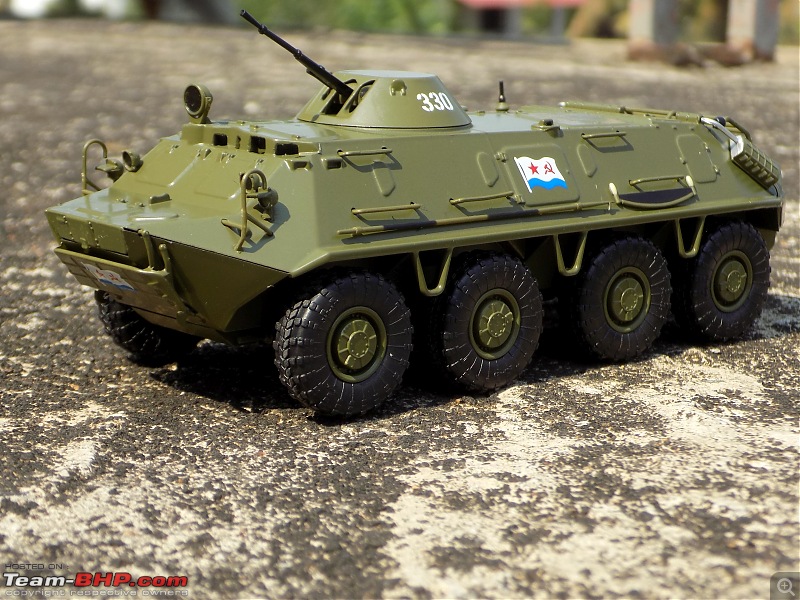
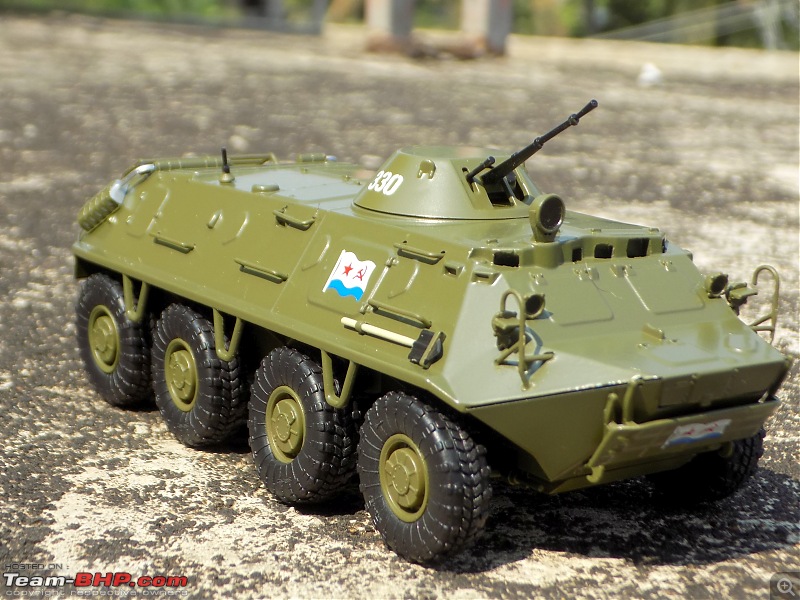

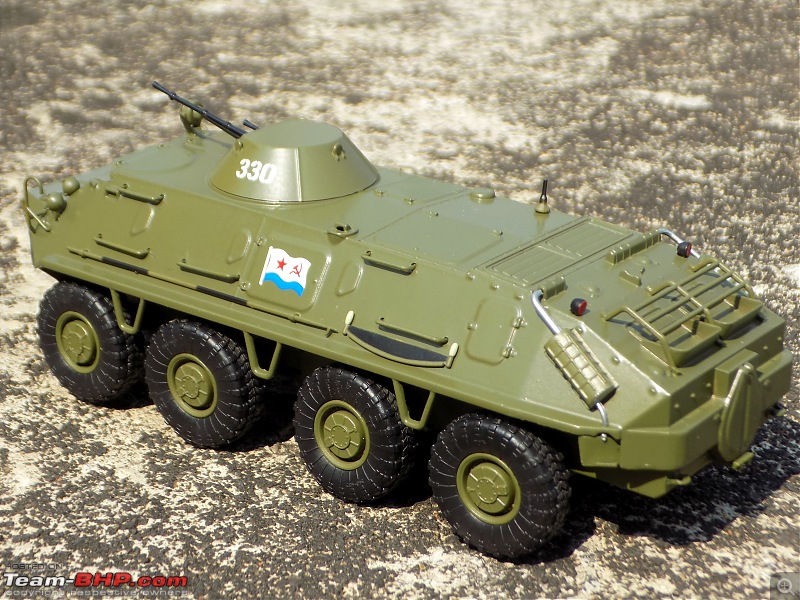

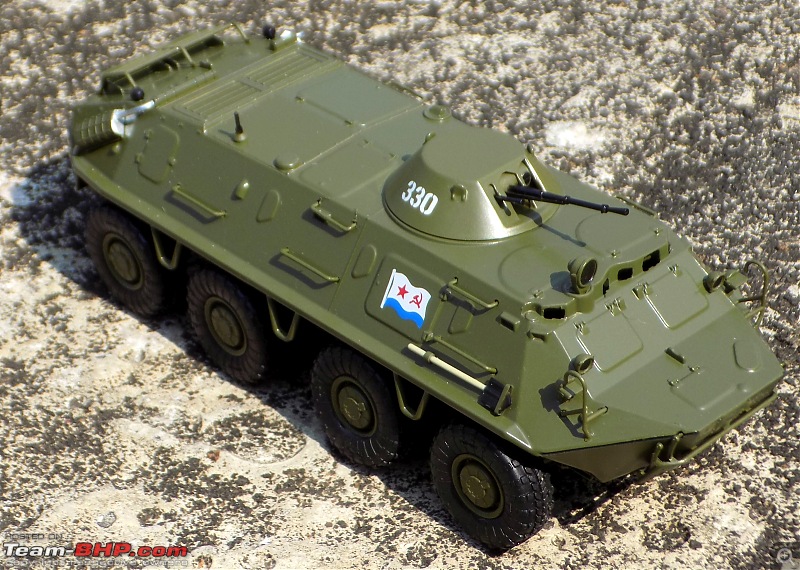

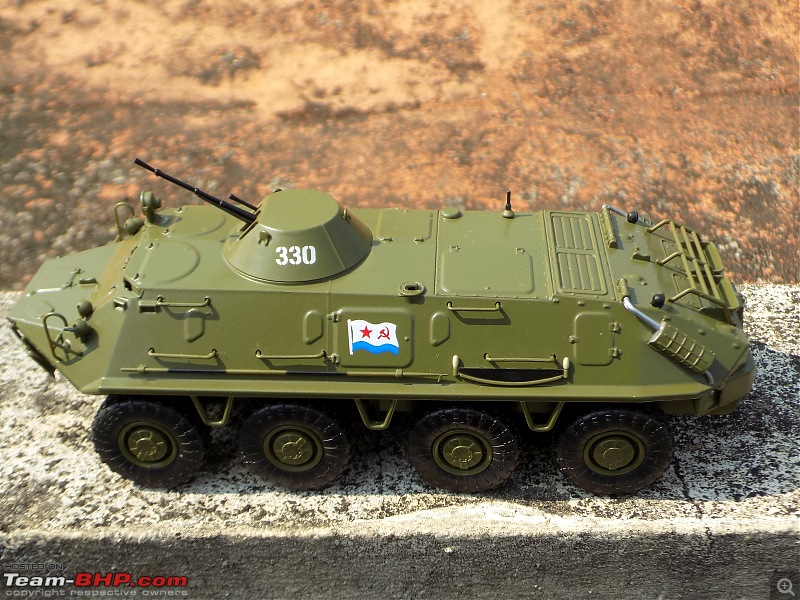
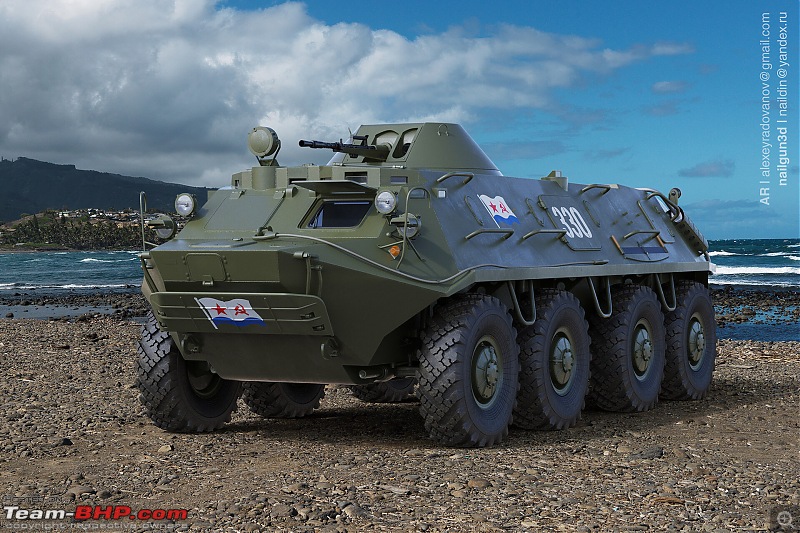
BTR-60PU
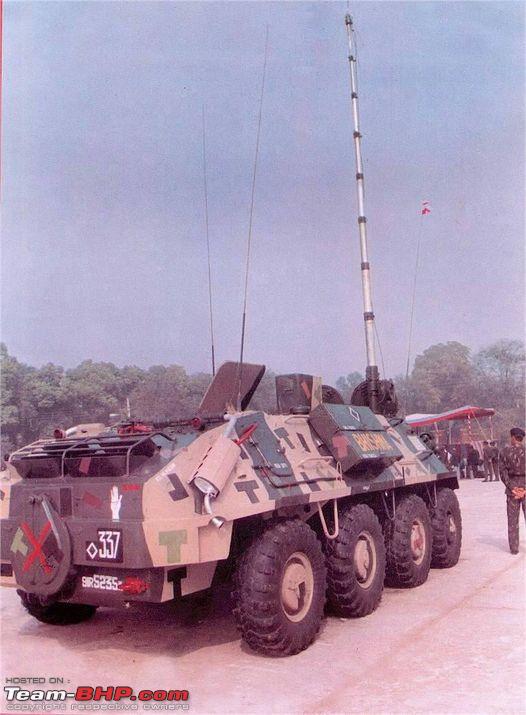
BTR-60PB
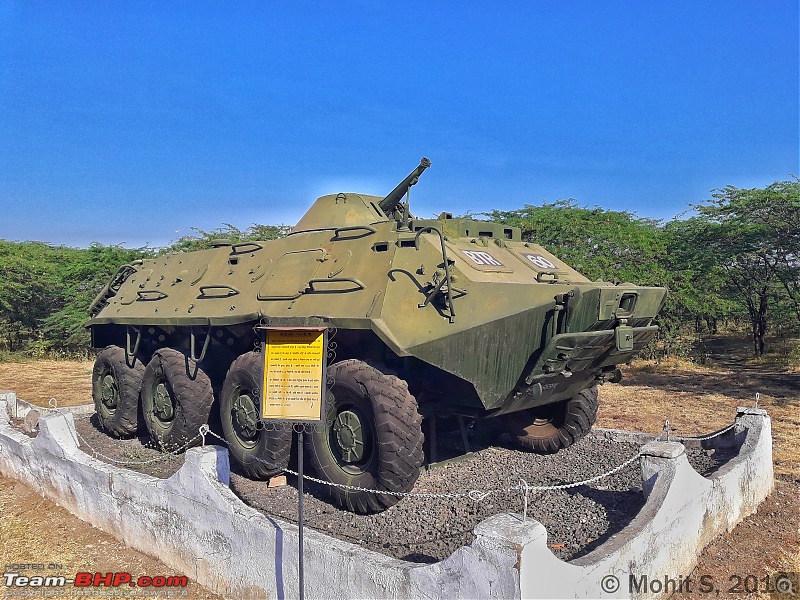 https://www.youtube.com/watch?v=BeOd9VRziyo https://www.youtube.com/watch?v=ekoQsX5PBK4
https://www.youtube.com/watch?v=BeOd9VRziyo https://www.youtube.com/watch?v=ekoQsX5PBK4
Quote:
Originally Posted by skanchan95
(Post 5467550)
1:43 BTR-60PB Soviet Naval Infantry (Modimio)
|
Marvellous addition to your ground collection clap: I didn't know they were amphibious and designed way back in 1955.
I think some of these are still being used by Ukraine in the current war. I watched the video and it seems very roomy compared to a BMP-1 which
I have briefly travelled in.
Why the odd scale of 1:43 ? Is that a standard for vehicles?
Quote:
Originally Posted by skanchan95
(Post 5467550)
1:43 BTR-60PB Soviet Naval Infantry (Modimio)
|
clap:
Another excellent addition to your collection. These armoured vehicles look so cute and alluring.
To their credit, the Soviets were quite advanced & progressive in their conceptual thinking. An 8-wheeled 8x8 drive armoured personnel carrier {APC} was a very real and much cheaper alternative to the tracked APCs that NATO went for in the 1950s and 1960s. Compared to tracked vehicles wheeled vehicles also have longer range and can continue with upto two wheels damaged/destroyed while a tracked vehicle is immobile after it sheds its tracks due to a hit. This was the first major 8x8 APC to enter service. The concept then caught on amongst other Armies too. The only short falls were the petrol engines {higher fire risk} and difficult to access side doors.
Quote:
Originally Posted by Foxbat
(Post 5467967)
I think some of these are still being used by Ukraine in the current war. I watched the video and it seems very roomy compared to a BMP-1 which
I have briefly travelled in.
|
Thank you.
More roomy BTR...that's probably because the BTRs are dedicated armored troop carriers and have more room while BMPs have a fire support role with a bigger gun. I will post a few pics comparing the BTR-60 with a BMP-1.
Quote:
Originally Posted by Foxbat
(Post 5467967)
Why the odd scale of 1:43 ? Is that a standard for vehicles?
|
1:43 is a standard scale for cars and trucks. I suppose Armored vehicles too are made in this scale by some manufactures.
Quote:
Originally Posted by V.Narayan
(Post 5468095)
clap:
Another excellent addition to your collection. These armoured vehicles look so cute and alluring.
|
Thank you Sir. I am tempted to do a photoshoot of an armored column under attack by Apaches and A-10s:D.
1:48 General Dynamics Land Systems M1128 Stryker MGS(Mobile Gun System)
The M1128 Mobile Gun System (MGS) was an eight-wheeled armored car of the Stryker armored fighting vehicle family, mounting a 105 mm tank gun, based on the Canadian LAV III light-armored vehicle manufactured by General Dynamics Land Systems for the U.S. Army.The Stryker MGS was retired at the end of 2022, due in part to the expense and difficulty of maintaining and upgrading the autoloader.
The M1128 Stryker Mobile Gun System (MGS) was designed to provide direct fire support for infantry units.The main gun provided direct fire in support of infantry, engaging stationary and mobile enemy targets, such as bunkers to create a combined arms effect of overmatched firepower that improves survivability of the combat team. The MGS vehicle is a strengthened variant of the LAV III compared to the standard variant other Stryker vehicles are based on, but retains commonality across all vehicles in the family.
The MGS was one of 10 variants of the Stryker series of wheeled armored vehicles. The M1128 was specially designed for low-intensity combats and takes some of the main battle tank roles.The M1128 MGS is armed with a M68A1E4 105 mm rifled tank gun. It is a modified version of the tank gun, used on the M1 Abrams and M60 series main battle tanks. This gun is fitted with a muzzle brake and an autoloader. It was the first time when a US military vehicle of this class was fitted with automatic ammunition loading system. Secondary armament consists of 12.7 mm and 7.62 mm machine guns.
The vehicle was primarily outfitted to support infantry combat operations; while it could have taken on some of the roles of a tank, it was not designed to engage in combat with tanks. The MGS could store 18 rounds of main gun ammunition, 8 in the autoloader's carousel and an additional 10 in a replenisher located at the rear of the vehicle. It had a rate of fire of ten rounds per minute.
Armor of the Mobile Gun System protects against small arms fire and artillery shell splinters. Interior is lined with Kevlar spall liner. Vehicle could be fitted with add-on composite armor, which provides protection against 14.5 mm rounds, and add-on slat armor which protects against anti-tank rockets and missiles. The MGS was fitted with NBC protection and automatic fire suppression systems. On the downside was protection against mines and improvised explosive devices. Protection against blasts was rather limited as the Stryker was never designed to withstand mine blasts.
The M1128 had a crew of three - commander, gunner and driver.It is powered by Caterpillar 3126 diesel engine, developing 350 horsepower. Engine and transmission of the MGS can be removed and re-installed in less than an hour. The Vehicle was not amphibious.
Specifications
Country of origin: United States
Designer: GM Defense of Canada, General Dynamics Land Systems
Manufacturer: General Dynamics Land Systems
Produced: 2002–2010
No. built: 142
Entered service: 2007
Crew: 3 men
Dimensions and weight
Weight: 18.7 t
Hull length: ~ 7 m
Width: ~ 2.7 m
Height: ~ 2.9 m
Armament
Main gun: M68A1E4 105 mm rifled gun
Secondary Armament: M2 .50 caliber machine gun; M240C coaxial machine gun; 2, M6 smoke grenade launchers
Maximum rate of fire: 6 rpm
Elevation range: - 10 to + 18 degrees
Traverse range: 360 degrees
Ammunition load
Main gun: 18 rounds
Machine guns: 400 x 12.7 mm, 400 x 7.62 mm
Mobility
Engine: Caterpillar C7 3126 turbo diesel engine
Power/weight: 18.65 hp/ton
Transmission: Automatic 6 forward, 1 reverse
Suspension: 8×8 wheeled
Ground clearance: 15 in (38 cm)
Fuel capacity: 56 US gallons (212 liters)
Engine power: 350 hp
Maximum road speed: 100 km/h
Range: 530 km


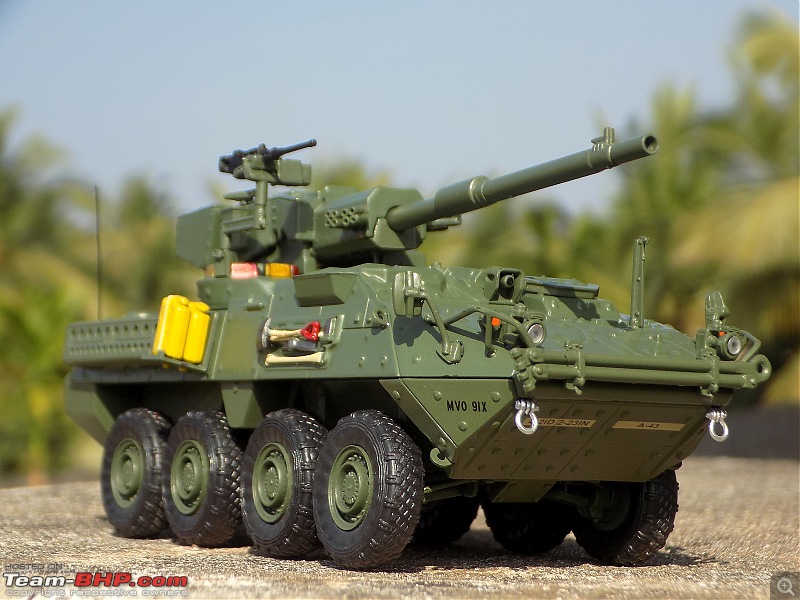
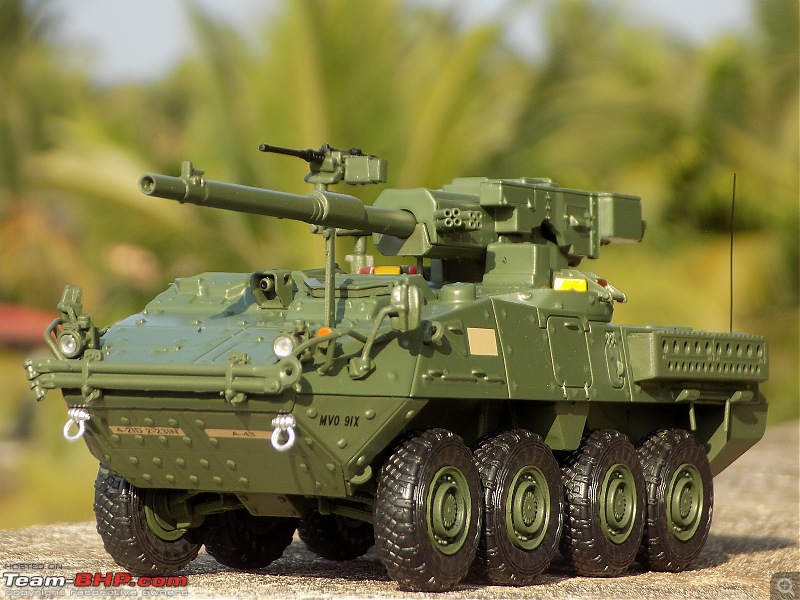
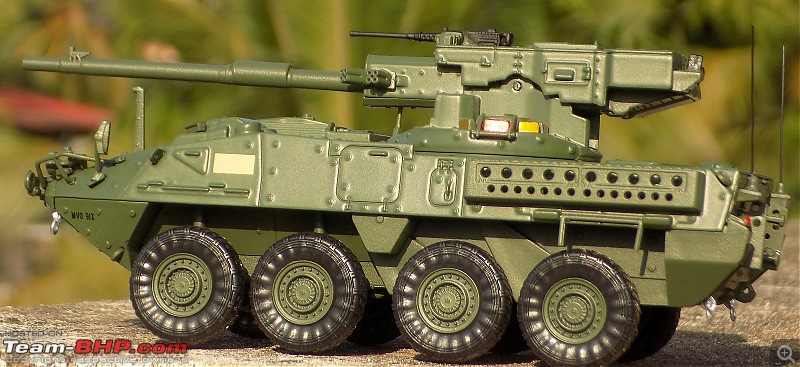
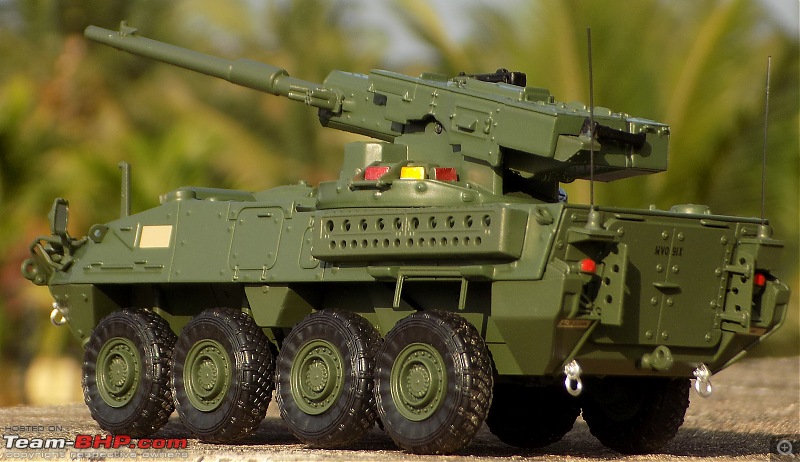
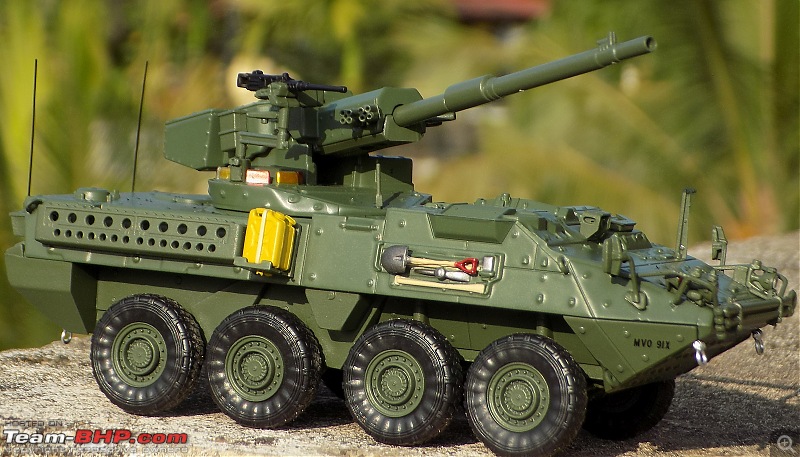
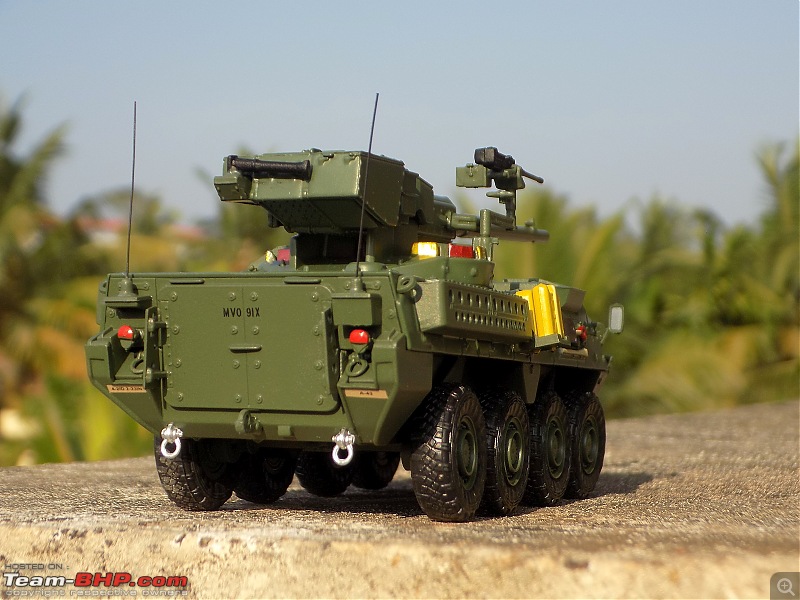


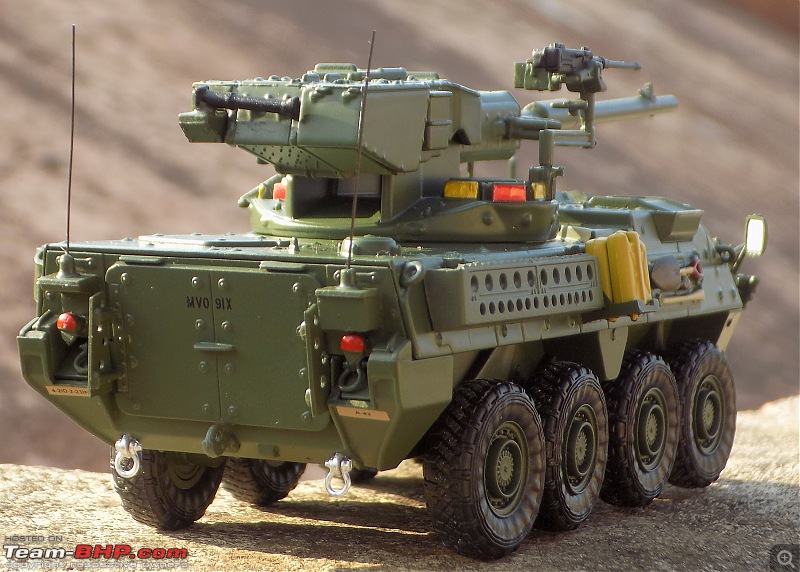
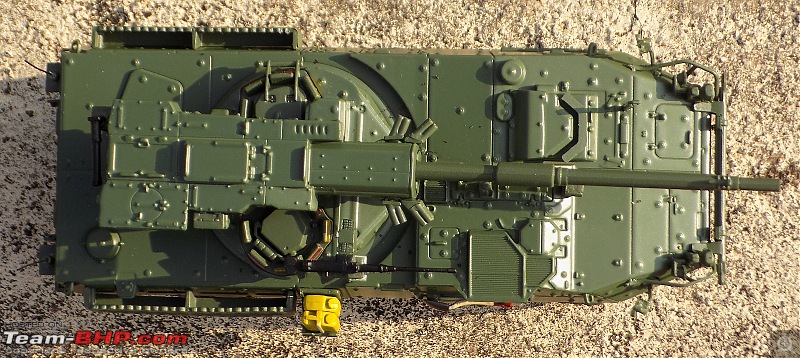

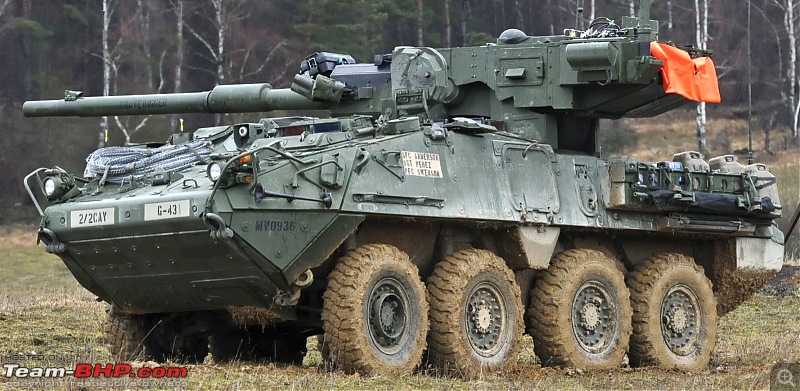 https://www.youtube.com/watch?v=Wn7_aVnJ7qE
https://www.youtube.com/watch?v=Wn7_aVnJ7qE
Stryker Mobile Gun System Autoloader :
https://www.youtube.com/watch?v=eZcOL_sxTsg
Quote:
Originally Posted by skanchan95
(Post 5470240)
I am tempted to do a photoshoot of an armored column under attack by Apaches and A-10s:D.
|
That would be interesting but more interesting would be the Abrams and Bradleys under attack by Hinds and Su-25s :D
I somehow convinced myself another 1:48 Su-27 is needed in traditional Russian markings, will keep me busy for the next few months...
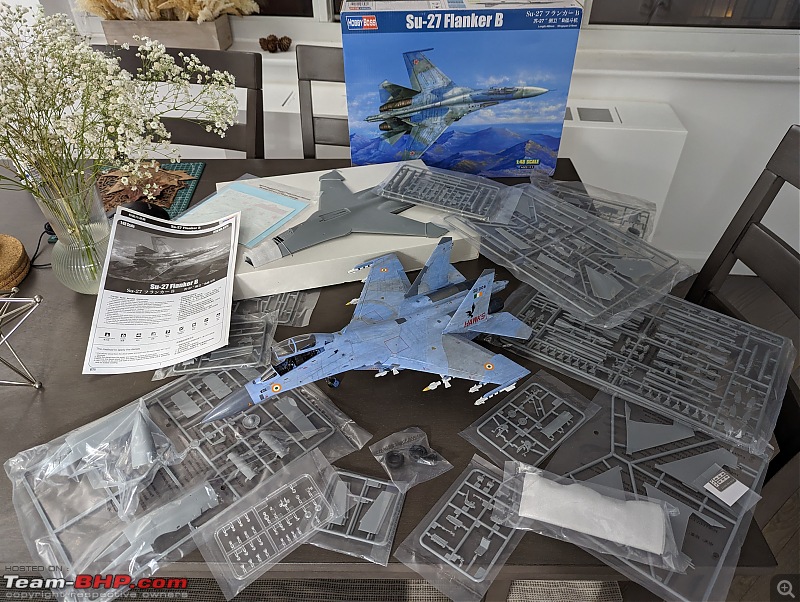
| All times are GMT +5.5. The time now is 12:28. | |





